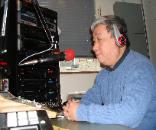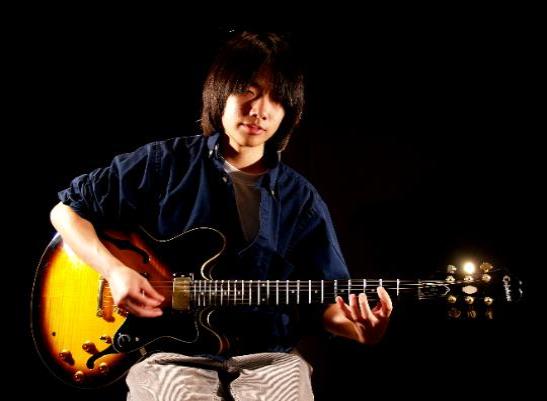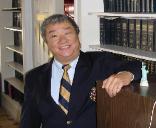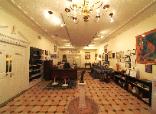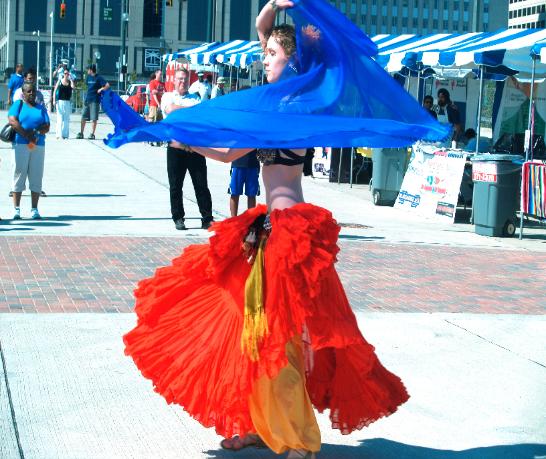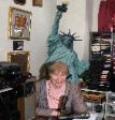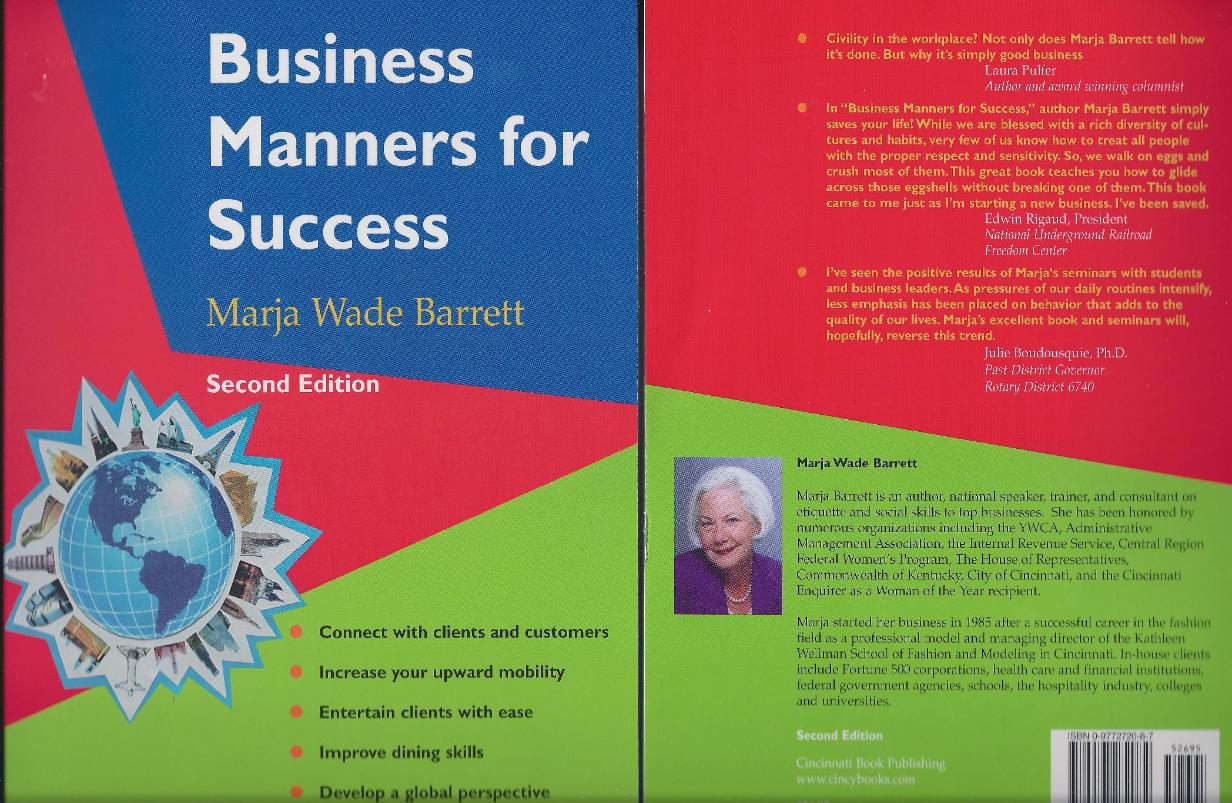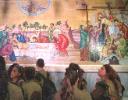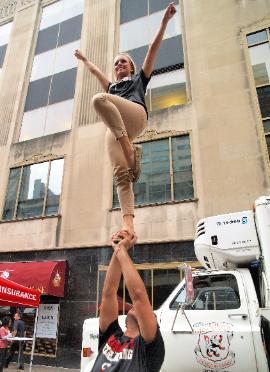| Abraham was an Immigrant: A Theological Reflection Abraham is widely accepted as a patriarch of the three great monotheistic faiths of the World. Abraham was an immigrant. His father, Terah was from the land of Ur of the Chaldeans (somewhere in present day Iraq) and while the tribe was resting at Haran, Terah died. Abraham, then known as Abram, heard God tell him to get out of his country and from his father's house to a land that God will reveal. Abram, whose obedience is renowned, complied.Many know this immigration saga of Abram, but there is more. For all was not well in the early Promised Land - there was a severe famine and Abram and his family were forced to move again, this time further south into the land of Egypt. As refugees fleeing starvation, the tribe was at the mercy of the Egyptians. Abram devised a plan – he ordered his wife, Sarai (later called Sarah) to tell the Egyptians that she was his sister, for otherwise said Abram, the Egyptians would kill him to take her. When the Pharaoh inquired of this irresistibly beautiful Sarai, Abram promptly sent her into Pharaoh’s house. By this disingenuous bargain, the tribe of Abram sojourned in Egypt and survived. From the days of that unwitting, unnamed Pharaoh, we can take a giant leap in unspecified time to the days of the Roman Caesar Augustus. Joseph, the father of a tiny household, decided to obey the voice of an angel - he fled from Bethlehem with his wife Mary and new-born to Egypt. This family obtained political asylum in Egypt and lived safely with the Egyptians until the death of King Herod who had cruelly ordered the killing of all male infants under the age of two in and around Bethlehem because Herod had heard that a future king had been born. The Scriptures are silent respecting Joseph's dealings in Egypt. Last, we can take another six century leap towards the present. Another great prophet, after an assassination attempt, fled with a small group of friends from the great commercial, then polytheistic city of Mecca to a remote village to the north then known as Yathrib (only later renamed Medina or City of the Prophet). The reason for the Hijra of September 9, 622 was religious persecution against the Prophet Muhammad (pbuh) by his own Quraysh tribe for his preaching of the one God and the Day of Judgment. This rag-tag band of asylum seekers who trekked across the perilous desert in fear and hope, is called the muhajirun (Arabic for emigrants). Upon arriving exhausted in Medina, the muhajirun prayed towards Bait-ul-Maqdis (and only later was the qibla changed to the Kaaba, a tradition that continues to the present). Immigration plays an important role in all three traditions, and it is true that the outcome of each version of emigration is different. Notwithstanding sublime religious ramifications, what is the common human link in all three stories? If we were to set aside for the moment all the theological subtleties, religious differences, and political conflicts that may derive from these instances of immigration, and focus on the humanity of Abraham, Joseph and Muhammad, what can we, as temporal traveling companions who share for a limited time this small space on earth, discern? Can we not see that each patriarch or prophet as is the case, was obliged, albeit for various reasons, to leave their ancestral home? Abram was faced with the choice of emigrating or starving to death. Joseph fled to save his baby Jesus from execution by a paranoid satrap. Muhammad sought safety for himself and the community of believers for his insistence on the one God. All suffered personal loss, fear of annihilation, and humiliation. Each placed the hope for survival and dream for a better future in a new place. All approached from a position of weakness. Each began as a vulnerable human prone to suffering and deprivation. Perhaps, most poignant is the willingness to deliver and entrust their lives into the hands of another better placed than they were. They all were immigrants. A Theological Reflection by Charleston C. K. Wang 07/04/06. Click here to send your comment. |
TO RETURN TO FIRST PAGE NEWS, CLICK HERE CLICK TO GO TO >PAGE 1> >PAGE 2> >PAGE 3> >PAGE 4> >PAGE 5> >PAGE 6> >PAGE 7> >PAGE 8> >PAGE 9> >PAGE10> >PAGE11> >PAGE 12> >PAGE 13> >PAGE 14> >PAGE 15> >PAGE 16> Photocredit for this page: Charleston C. K. Wang |
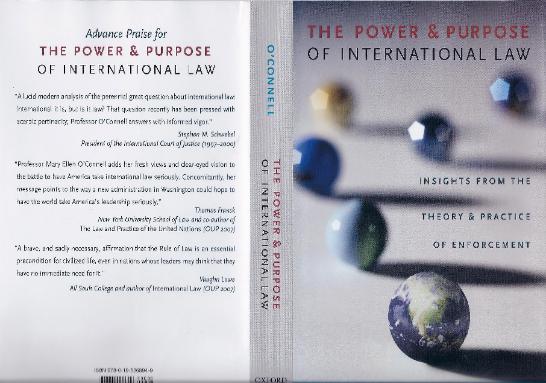
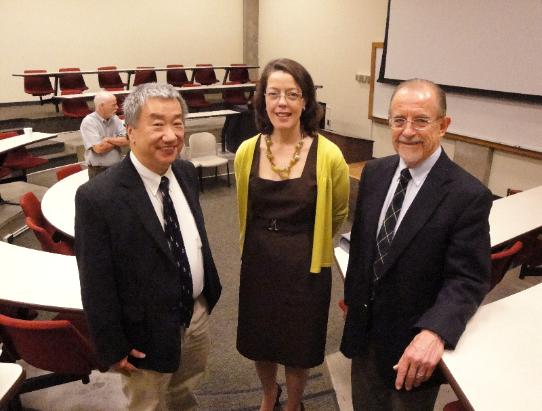
THE ASIAN AMERICAN HOUR has gotten bigger - we are now on the air weekly on public radio WAIF-CINCINNATI 88.3 FM and our broadcast time has moved to prime-time THE ASIAN AMERICAN HOUR CELEBRATES 10 YEARS ON THE AIR WITH WAIF 88.3 FM Date of First Broadcast: 6/7/2001 THE ASIAN AMERICAN HOUR will continue to feature talk, and music, and other good things with a discernable slant towards Asian American affairs, immigration, and many other issues of interest to our community-at-large. THE ASIAN AMERICAN HOUR is produced and hosted by Charleston Wang with Mary Joan Reutter as co-host, together with our distinguished guests. So, tune in to THE ASIAN AMERICAN HOUR on WAIF-CINCINNATI 88.3 FM. every Monday 5-6 PM. Get the latest on the Asian American community in Cincinnati, the fast growing & mobile community in the Tri-state. After listening to the THE ASIAN AMERICAN HOUR, e-mail us direct feedback and thoughts by clicking here. If you or a friend wish to be a guest on THE ASIAN AMERICAN HOUR, please let us know. Tune in to THE ASIAN AMERICAN HOUR every Monday 5 - 6 PM on WAIF 88.3 FM Cincinnati on the air - Or on internet streaming audio from anywhere in the world by clicking here. |
| THE ASIAN AMERICAN HOUR on WAIF 88.3 FM Cincinnati IS NOW A WEEKLY PRIME-TIME SHOW EVERY MONDAY EVENING 5 - 6 P.M. Informing the People of Cincinnati (and Beyond) since 6/7/2001. Listen via internet streaming audio by clicking here, CONTACT US AT asianamericanhour@wangnews.net |

| ARTHUREX DEBUTS ON YOUTUBE ORIGINAL AND COVER SONGS CLICK ON PHOTO TO ENJOY |
To read old "First Page News," click here
| Your breath is sweet. Your eyes are like two jewels in the sky. Your back is straight, your hair is smooth on the pillow where you lie. But I don't sense affection. No gratitude or love. Your loyalty is not to me but to the stars above. One more cup of coffee for the road. One more cup of coffee 'fore I go to the valley below. BOB DYLAN. |
| WANG NEWS SERVICE An Independent Source of News & Views |
GOT NEWS?
GOT
OPINION?
Send your information,
photographs, or
comments to
WANGNEWS for
consideration to be
published in WANG
NEWS SERVICE.
To send, use this
email address:
news@wangnews.net
GOT
OPINION?
Send your information,
photographs, or
comments to
WANGNEWS for
consideration to be
published in WANG
NEWS SERVICE.
To send, use this
email address:
news@wangnews.net
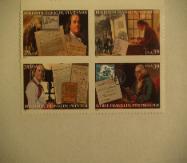
Mary Ellen O'Connell

Photocredit: Mary Joan Reutter
YPIMgReach out to the
decision-makers, opinion-
agents of Greater
Cincinnati and the World.
ADVERTISE with
WANG NEWS SERVICE.
For terms and conditions,
you are invited to inquire
by email:
advertise@wangnews.net
decision-makers, opinion-
agents of Greater
Cincinnati and the World.
ADVERTISE with
WANG NEWS SERVICE.
For terms and conditions,
you are invited to inquire
by email:
advertise@wangnews.net
| Current U. S. Eastern Time: |
GOT RICE?
| Those who would give up Essential Liberty to purchase a little Temporary Safety, deserve neither Liberty nor Safety - Benjamin Franklin (1759). |
| To read "A Reflection of Jerusalem and the New Jerusalem from the Ground," click here. |
September 2011 Extra
For August 2011 Extra Click Here
For August 2011 Extra Click Here

For Upcoming Sunday
Seminars on Current Issues
at Christ Church Cathedral
in the City of Cincinnati
click here.
Seminars on Current Issues
at Christ Church Cathedral
in the City of Cincinnati
click here.
| WANGLAW Attorneys & Counselors at Law |
| To read "Confession of a Gentile in Jerusalem: The Paradox of the Five Sheklim Blessing," click here. |
CLICK HERE TO SEE
INDEX OF OP-EDS
INDEX OF OP-EDS
| To view "Into the Heat of the Hebron Cauldon," click here. |
Free
Download
Download
| To view "The Garden of Gethsemane and Church of All Nations," click here. |
| To view "Caesarea Maritima as Known to Saint Paul," click here. |
| SEARCH WANGNEWS |
| SEARCH WANGNEWS |
| From Left to Right - Charleston C. K. Wang, Esq., Professor Mary Ellen O'Connell & Dean Gordon A. Christenson, Emeritus University of Cincinnati College of Law |
| BUSINESS MANNERS FOR SUCCESS BY MARJA WADE BARRETT IS AVAILABLE FROM THE CHRIST CHURCH CATHEDRAL SHOP AT 318 E. 4th STREET (4th & SYCAMORE) Pick up your copy by visiting the shop on location or via the internet. For more information, please, click here. |
| To view Pilgrimage to Bethlehem, Birthplace of Jesus, click here. |

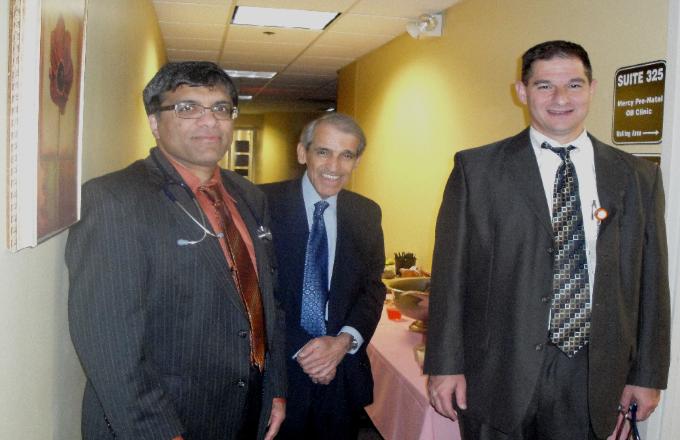
| VOLUNTEER PHYSICIANS OF MERCY CARE CLINIC: From Left to Right: DR. TARIQ SULTAN, DR. NEMAT MOUSSAVIAN, DR. DAN ROTH |
| To view "Herodion: A Fortress During the Gospels," click here. |
| To read "The Wilderness of Abraham, Jesus & Israel- Palestine," click here. |
| To view "In Search of the Messianic Secret - Caesarea Phillipi," click here. |
| To view "The Call for Simon Peter, Fisherman," click here. |
| To read "Descending to the Dead Sea and Ascending to Qumran," click here. |
| To read "Jury for Jericho," click here. |

| To view "The Empty Tombs," click here. |
V More Photonews to come. Visit www.wangnews.net again and soon! V V |
MARCHING DOWN MONTGOMERY ROAD, OHIO ON JULY 4, 2011
| CLICK ON PHOTO TO SEE COMPLETE PHOTONEWS OF JULY 4th PARADE 2011 |

| A Partnership between Mercy Hospital Anderson and Muslim Clinic of Ohio |
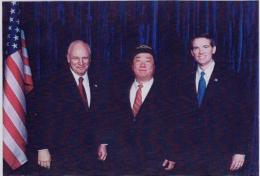
From 2001-2009, Richard Bruce Cheney served as the 46th Vice President of the United
States, under George W. Bush. A few weeks ago, with help from daughter Liz, Dick published
his memoirs: “In My Time.” Those times also happen to be my time and I did not hesitate to
buy a hardcover First Edition and read it from cover to cover. It was time well spent for all 18
chapters were written in clear, easy to read, no-nonsense prose. The first 8 chapters
reminisce about the beginning and include Mr. Cheney’s earlier political life. He has many
kind words for President Ford, and others including his former boss, Donald Rumsfeld who
were instrumental in his rise in politics from his youthful days as a drop-out from Yale. The
second half of the book addresses his time as a powerful, decision-making Vice President.
Embedded between the two halves are recollections on Iraq . In fact, it appears to me that
Iraq is foremost on Mr. Cheney’s mind and it is Iraq that he wishes to be clear on, at least by
his own reckoning of his time. He wants to be clear that he played a major role in the
decision to invade Iraq in March 2003 and that the reason is that Saddam Hussein “has
continued its weapons of mass destruction in defiance of the UN resolutions and
restrictions,” and “has chemical and biological weapons as well as missiles with ranges in
excess of UN restrictions,” and “if left unchecked, it [Iraq] probably will have a nuclear
weapon in this decade.”[1] To this day and end, Mr. Cheney links Iraq with 9/11 and terrorism
a la Al Qaeda.
From that fateful Tuesday that is seen as an attempt by terrorists to "decapitate" the United
States, Mr. Cheney lives by the sentiment that 9/11/2001 changed America forever[2], and for
himself, it seems that 9/11 became all consuming, a diabolical attack on America for which in
Mr. Cheney’s playbook there can be one and only one response – the application of
escalating military force against Al Qaeda and everyone and everything that are suspected to
have any link to that terrorist outfit. His passion may best be summed up in his own words:
We are dealing here with evil people who dwell in the shadows, planning unimaginable
violence and destruction. We have no alternative but to meet the enemy where he dwells.
… We must and we will use every means at our disposal to ensure the freedom and security
of the American people.[3]
The first move by the rudely jolted Bush Administration was to attack Afghanistan (this is
where Osama bin Laden is) and next was Iraq. Like an injured giant, the former Secretary of
Defense, in pain and anger, enthusiastically lashes out against enemies he believes to be
responsible for 9/11. Persons captured in these wars are be treated not as prisoners of war
but with means commensurate with the high value of what they know and hence the invention
of rendition and the enhanced interrogation.
As it turned out, his chagrin is directed not only against foreigners, but also against those in
the administration whom he perceived to stand in the way of his war policies. Perhaps first
and foremost is General Colin Powell and he had the satisfaction of seeing the Secretary of
State replaced by Condoleezza Rice in 2005. Later when President Bush signaled a move
away from the counsel of the vice president, especially on the question of North Korea’s
nuclear weapons program, criticism is levied on the new Secretary of State, including she
being “utterly misleading and totally divorced from what [she] was doing,” and “in the
absence of an agreement, to pretend to have one.”[4] On the broader front, Cheney also
gives his impression of the internal crisis over domestic surveillance by the National Security
Agency and presents a fascinating narrative of the struggle with John Ashcroft while the
Attorney General lay sick in hospital with pancreatitis.
Perhaps, the ire of Mr. Cheney may be better understood by reference to the doctrine of the
Axis of Evil, a phrase first unveiled by President Bush in his State of the Union Address on
January 29, 2002 and repeated many time thereafter (but never in the book). Bush designated
Iran, Iraq and North Korea as the Axis of Evil. During June 2007, Mr. Cheney had advocated
the use of the U.S. military to destroy a nuclear reactor that North Korea was helping Syria
build at al-Kibar. As it turned out, he was the “lone voice,” and the President decided to take
the “diplomatic path.”[5] Notwithstanding the Axis of Evil, the Bush Administration continued
to pursue a diplomatic solution against North Korea’s nuclear ambition; on June 26, 2008,
Bush made an announcement in the Rose Garden of his intent to take North Korea off the list
of state sponsors of terror. Mr. Cheney wrote:
I was disappointed, and not just because I disagreed with the president. It was his call. But
the process and decision that followed had seemed so out of keeping with the clearheaded
way I’d seen him make decisions in the past.[6]
There are other disappointments – the firing of Don Rumsfeld as Secretary of Defense, and
later of the Chair of the Joint Chiefs, General Peter Pace, and closer to home yet, the refusal
of Bush to give a full pardon to Cheney’s advisor, I. Lewis "Scooter" Libby for his conviction
in the leak of the covert identity of CIA agent Valerie Plame. Perhaps Mr. Cheney also rues
over the failure to get Osama bin Laden, although he is gracious to compliment President
Obama for finishing the job.
Mr. Cheney closes his book with a cursory discussion of the financial debacle that confronted
the last days of the Bush Administration. His take on that disaster can be gleaned by his own
obliging words: “The reasons for the financial crisis of 2008 are likely to be long debated.”
Mr. Cheney clearly wishes to be remembered for his unequivocal contribution to the war on
terror and not on the terror, albeit mostly non-physical but no less debilitating, suffered by
the American people by the economic recession from which we are still recovering today.
Nonetheless, on the home front, Mr. Cheney desires to be remembered for his tie-breaking
votes in the Senate, in his own words: “My ability to cast those votes gave Americans the
Bush tax cut they still enjoy as I write.”[7]
As with all major contemporary events, history will the arbiter of the big picture, this to come
to pass not in our lifetimes. The policy of waging war against two Nation-states for the acts of
a non-state actor such as Al Qaeda and cutting of taxes under the knowledge of increased
expenditures from these wars; the legacy of detainee treatment at Guantanamo; on the
domestic front: the unpreparedness displayed in the face of Hurricane Katrina (maybe a lot of
our National Guards and their equipment were in Iraq), being caught unawares by the
mortgage meltdown, these are issues among many others that will be long debated. I
suspect Mr. Cheney, who himself is a great lover of history, will be remembered as a single-
minded twentieth century American patriot who started many things but finished few in a
changing and more complex, multifaceted world order of the twenty first.
Charleston C. K. Wang, September 21, 2011, Cincinnati , Ohio , USA.
___________________________________
[1] Cheney, “In My Time,” pp 391-392 quoting 2002 National Intelligence Estimate, 2011 Threshold Editions.
[2] "September 11 changed our world forever. We may not like it, but it is the world in which we live." Id. at p393.
[3] Id. at p.343. This policy echoes the ancient Roman maxim of salus populi suprema lex esto.
[4] Id. at p.487.
[5] Id. at p.471-2. The issue became moot when Israeli F-15s bombed the facility on September 6, 2007.
[6] Id. at p.486.
[7] Id. at p.494.
States, under George W. Bush. A few weeks ago, with help from daughter Liz, Dick published
his memoirs: “In My Time.” Those times also happen to be my time and I did not hesitate to
buy a hardcover First Edition and read it from cover to cover. It was time well spent for all 18
chapters were written in clear, easy to read, no-nonsense prose. The first 8 chapters
reminisce about the beginning and include Mr. Cheney’s earlier political life. He has many
kind words for President Ford, and others including his former boss, Donald Rumsfeld who
were instrumental in his rise in politics from his youthful days as a drop-out from Yale. The
second half of the book addresses his time as a powerful, decision-making Vice President.
Embedded between the two halves are recollections on Iraq . In fact, it appears to me that
Iraq is foremost on Mr. Cheney’s mind and it is Iraq that he wishes to be clear on, at least by
his own reckoning of his time. He wants to be clear that he played a major role in the
decision to invade Iraq in March 2003 and that the reason is that Saddam Hussein “has
continued its weapons of mass destruction in defiance of the UN resolutions and
restrictions,” and “has chemical and biological weapons as well as missiles with ranges in
excess of UN restrictions,” and “if left unchecked, it [Iraq] probably will have a nuclear
weapon in this decade.”[1] To this day and end, Mr. Cheney links Iraq with 9/11 and terrorism
a la Al Qaeda.
From that fateful Tuesday that is seen as an attempt by terrorists to "decapitate" the United
States, Mr. Cheney lives by the sentiment that 9/11/2001 changed America forever[2], and for
himself, it seems that 9/11 became all consuming, a diabolical attack on America for which in
Mr. Cheney’s playbook there can be one and only one response – the application of
escalating military force against Al Qaeda and everyone and everything that are suspected to
have any link to that terrorist outfit. His passion may best be summed up in his own words:
We are dealing here with evil people who dwell in the shadows, planning unimaginable
violence and destruction. We have no alternative but to meet the enemy where he dwells.
… We must and we will use every means at our disposal to ensure the freedom and security
of the American people.[3]
The first move by the rudely jolted Bush Administration was to attack Afghanistan (this is
where Osama bin Laden is) and next was Iraq. Like an injured giant, the former Secretary of
Defense, in pain and anger, enthusiastically lashes out against enemies he believes to be
responsible for 9/11. Persons captured in these wars are be treated not as prisoners of war
but with means commensurate with the high value of what they know and hence the invention
of rendition and the enhanced interrogation.
As it turned out, his chagrin is directed not only against foreigners, but also against those in
the administration whom he perceived to stand in the way of his war policies. Perhaps first
and foremost is General Colin Powell and he had the satisfaction of seeing the Secretary of
State replaced by Condoleezza Rice in 2005. Later when President Bush signaled a move
away from the counsel of the vice president, especially on the question of North Korea’s
nuclear weapons program, criticism is levied on the new Secretary of State, including she
being “utterly misleading and totally divorced from what [she] was doing,” and “in the
absence of an agreement, to pretend to have one.”[4] On the broader front, Cheney also
gives his impression of the internal crisis over domestic surveillance by the National Security
Agency and presents a fascinating narrative of the struggle with John Ashcroft while the
Attorney General lay sick in hospital with pancreatitis.
Perhaps, the ire of Mr. Cheney may be better understood by reference to the doctrine of the
Axis of Evil, a phrase first unveiled by President Bush in his State of the Union Address on
January 29, 2002 and repeated many time thereafter (but never in the book). Bush designated
Iran, Iraq and North Korea as the Axis of Evil. During June 2007, Mr. Cheney had advocated
the use of the U.S. military to destroy a nuclear reactor that North Korea was helping Syria
build at al-Kibar. As it turned out, he was the “lone voice,” and the President decided to take
the “diplomatic path.”[5] Notwithstanding the Axis of Evil, the Bush Administration continued
to pursue a diplomatic solution against North Korea’s nuclear ambition; on June 26, 2008,
Bush made an announcement in the Rose Garden of his intent to take North Korea off the list
of state sponsors of terror. Mr. Cheney wrote:
I was disappointed, and not just because I disagreed with the president. It was his call. But
the process and decision that followed had seemed so out of keeping with the clearheaded
way I’d seen him make decisions in the past.[6]
There are other disappointments – the firing of Don Rumsfeld as Secretary of Defense, and
later of the Chair of the Joint Chiefs, General Peter Pace, and closer to home yet, the refusal
of Bush to give a full pardon to Cheney’s advisor, I. Lewis "Scooter" Libby for his conviction
in the leak of the covert identity of CIA agent Valerie Plame. Perhaps Mr. Cheney also rues
over the failure to get Osama bin Laden, although he is gracious to compliment President
Obama for finishing the job.
Mr. Cheney closes his book with a cursory discussion of the financial debacle that confronted
the last days of the Bush Administration. His take on that disaster can be gleaned by his own
obliging words: “The reasons for the financial crisis of 2008 are likely to be long debated.”
Mr. Cheney clearly wishes to be remembered for his unequivocal contribution to the war on
terror and not on the terror, albeit mostly non-physical but no less debilitating, suffered by
the American people by the economic recession from which we are still recovering today.
Nonetheless, on the home front, Mr. Cheney desires to be remembered for his tie-breaking
votes in the Senate, in his own words: “My ability to cast those votes gave Americans the
Bush tax cut they still enjoy as I write.”[7]
As with all major contemporary events, history will the arbiter of the big picture, this to come
to pass not in our lifetimes. The policy of waging war against two Nation-states for the acts of
a non-state actor such as Al Qaeda and cutting of taxes under the knowledge of increased
expenditures from these wars; the legacy of detainee treatment at Guantanamo; on the
domestic front: the unpreparedness displayed in the face of Hurricane Katrina (maybe a lot of
our National Guards and their equipment were in Iraq), being caught unawares by the
mortgage meltdown, these are issues among many others that will be long debated. I
suspect Mr. Cheney, who himself is a great lover of history, will be remembered as a single-
minded twentieth century American patriot who started many things but finished few in a
changing and more complex, multifaceted world order of the twenty first.
Charleston C. K. Wang, September 21, 2011, Cincinnati , Ohio , USA.
___________________________________
[1] Cheney, “In My Time,” pp 391-392 quoting 2002 National Intelligence Estimate, 2011 Threshold Editions.
[2] "September 11 changed our world forever. We may not like it, but it is the world in which we live." Id. at p393.
[3] Id. at p.343. This policy echoes the ancient Roman maxim of salus populi suprema lex esto.
[4] Id. at p.487.
[5] Id. at p.471-2. The issue became moot when Israeli F-15s bombed the facility on September 6, 2007.
[6] Id. at p.486.
[7] Id. at p.494.
| A GLIMPSE INTO “IN MY TIME” A Book Review by Charleston C. K. Wang |
I wonder if I have acquired a new auditory dysfunction. In addition to sound sensitivity, I don’t
seem to hear any political talking head. I go deaf. Maybe it’s a defense to protect my dwindling
supply of brain cells, but I tend not to compute what they’re saying - it all runs together,
yadayadayada, no matter the political persuasion.
Maybe there’s such a thing as too much transparency. The level of political detail that’s
captured the media does more than convey the specifics of who said what to whom and when.
Unfortunately, the constant barrage has revealed the process of government and media that
produces what we’re subjected to. We see behind the pictures and story presented, to an
unintended x-ray of the underlying structure.
I don’t know about “the truth will set you free”. For me it’s more like the truth will make you
more scared or it will increase your faith; but, maybe that’s the same thing. One of the recent
truths I’ve come across is Chris Hedges’ take on our situation.1 He’s a former war
correspondent, Union Theological Seminary student and all-around deep thinker. Here’s his
latest. He uses the metaphor of “trolls” [from Scandinavian folklore…supernatural beings,
giants dwarfs or imps, living underground]:
“…the pulse of the nation is being assiduously monitored through polls and focus groups,
not because our opinions matter, but because our troll candidates understand that by
parroting back to us our own viewpoints they can continue to spend their days lapping up
corporate money with other trolls in the two houses of Congress, the White House, the
Supreme Court and television studios where they chat with troll celebrity journalists.”
Hedges thinks what’s happened is that
“The press, education, Wall Street, labor and our political parties are managed by trolls or
have been destroyed by them. …the language they use is a cover for the relentless march
toward a totalitarian capitalism and a kingdom where the trolls, if not the rest of us, live
happily ever after.”
Elizabeth Warren describes how she canvassed members of Congress individually in order to
get the Consumer Protection Agency written into law. When she, by herself, left a Congressman’
s office, she says she’d have to squeeze through the throng of lobbyists there to talk against
it. And we know what’s happened to Elizabeth: she’s back in MA deciding whether or not to run
for the Senate.
I’m not quite ready to adopt Hedges’ “totalitarian capitalism”, but I feel I’m edging closer. I
agree with Sen. Bernie Sanders (I-Vt) who points out that we’re becoming two countries – one
rich, the other poor; one with a strong Federal government, vs. one with power in the states.
My translation is the age-old “we vs. I” tension. Will we have a government where “…a union
of states … agrees to subordinate its power to that of the central authority in common affairs”
(Websters New World Dictionary) or will we no longer have common affairs?
I am definitely a “we” person. David Brooks describes[2] the ‘we vs. I’ dynamic perfectly: On a
family trip to Africa they stayed in a variety of camps – from simple (no electricity) to luxurious.
He says:
“I know only one word to describe what the simpler camps had and the more luxurious
camps lacked: haimish. It’s a Yiddish word that suggests warmth, domesticity and
unpretentious conviviality. … When we moved from a simple camp to a more luxurious
camp, we crossed an invisible Haimish Line. The simpler camps had it, the more
comfortable ones did not.”
Money appears to buy greater social isolation, attention to the individual, emphasis on ‘me and
my needs’. To me “Totalitarian capitalism” is the epitome of this philosophy, everything is
subservient to ‘me and what I want or believe’.
It’s time for a trip over the bridge to see the river and renew my connection to a world
untouched by any of this. But when I get back, I still have to decide how to live in the world I’ve
been given. Chris Hedges’ [1] suggestion is to stop being afraid, to listen closely to the moral
voices in our society, from Bob McKibben to Noam Chomsky to Wendell Berry to Ralph Nader.
Since I won’t be watching much of the political hoopla,
I will have more time to help create an alternative society.
© Beverly Jones, 2011 Do Good. Together.
[1] Chris Hedges, “The Election March of the Trolls”, 8-29-11: http://www.commondreams.org/view/2011/08/29-0
[2] David Brooks, “Below the Haimish Line”, NYTimes, 8-30-11: http://www.nytimes.com/2011/08/30/opinion/brooks-the-
haimish-line.html?_r=1&ref=opinion
seem to hear any political talking head. I go deaf. Maybe it’s a defense to protect my dwindling
supply of brain cells, but I tend not to compute what they’re saying - it all runs together,
yadayadayada, no matter the political persuasion.
Maybe there’s such a thing as too much transparency. The level of political detail that’s
captured the media does more than convey the specifics of who said what to whom and when.
Unfortunately, the constant barrage has revealed the process of government and media that
produces what we’re subjected to. We see behind the pictures and story presented, to an
unintended x-ray of the underlying structure.
I don’t know about “the truth will set you free”. For me it’s more like the truth will make you
more scared or it will increase your faith; but, maybe that’s the same thing. One of the recent
truths I’ve come across is Chris Hedges’ take on our situation.1 He’s a former war
correspondent, Union Theological Seminary student and all-around deep thinker. Here’s his
latest. He uses the metaphor of “trolls” [from Scandinavian folklore…supernatural beings,
giants dwarfs or imps, living underground]:
“…the pulse of the nation is being assiduously monitored through polls and focus groups,
not because our opinions matter, but because our troll candidates understand that by
parroting back to us our own viewpoints they can continue to spend their days lapping up
corporate money with other trolls in the two houses of Congress, the White House, the
Supreme Court and television studios where they chat with troll celebrity journalists.”
Hedges thinks what’s happened is that
“The press, education, Wall Street, labor and our political parties are managed by trolls or
have been destroyed by them. …the language they use is a cover for the relentless march
toward a totalitarian capitalism and a kingdom where the trolls, if not the rest of us, live
happily ever after.”
Elizabeth Warren describes how she canvassed members of Congress individually in order to
get the Consumer Protection Agency written into law. When she, by herself, left a Congressman’
s office, she says she’d have to squeeze through the throng of lobbyists there to talk against
it. And we know what’s happened to Elizabeth: she’s back in MA deciding whether or not to run
for the Senate.
I’m not quite ready to adopt Hedges’ “totalitarian capitalism”, but I feel I’m edging closer. I
agree with Sen. Bernie Sanders (I-Vt) who points out that we’re becoming two countries – one
rich, the other poor; one with a strong Federal government, vs. one with power in the states.
My translation is the age-old “we vs. I” tension. Will we have a government where “…a union
of states … agrees to subordinate its power to that of the central authority in common affairs”
(Websters New World Dictionary) or will we no longer have common affairs?
I am definitely a “we” person. David Brooks describes[2] the ‘we vs. I’ dynamic perfectly: On a
family trip to Africa they stayed in a variety of camps – from simple (no electricity) to luxurious.
He says:
“I know only one word to describe what the simpler camps had and the more luxurious
camps lacked: haimish. It’s a Yiddish word that suggests warmth, domesticity and
unpretentious conviviality. … When we moved from a simple camp to a more luxurious
camp, we crossed an invisible Haimish Line. The simpler camps had it, the more
comfortable ones did not.”
Money appears to buy greater social isolation, attention to the individual, emphasis on ‘me and
my needs’. To me “Totalitarian capitalism” is the epitome of this philosophy, everything is
subservient to ‘me and what I want or believe’.
It’s time for a trip over the bridge to see the river and renew my connection to a world
untouched by any of this. But when I get back, I still have to decide how to live in the world I’ve
been given. Chris Hedges’ [1] suggestion is to stop being afraid, to listen closely to the moral
voices in our society, from Bob McKibben to Noam Chomsky to Wendell Berry to Ralph Nader.
Since I won’t be watching much of the political hoopla,
I will have more time to help create an alternative society.
© Beverly Jones, 2011 Do Good. Together.
[1] Chris Hedges, “The Election March of the Trolls”, 8-29-11: http://www.commondreams.org/view/2011/08/29-0
[2] David Brooks, “Below the Haimish Line”, NYTimes, 8-30-11: http://www.nytimes.com/2011/08/30/opinion/brooks-the-
haimish-line.html?_r=1&ref=opinion
| Warning: Serious Stuff Some of the material may be disturbing. Reflections on Life In the Turn Lane Beverly Jones, September 3, 2011 |
| LABOR DAY 2011 FIREWORKS Cincinnati-Covington Riverfront |
| 6th ANNUAL RUSSIAN FESTIVAL, 2011 September 3, 2011 in Nisbet Park, Loveland, Ohio, USA Click on photo for complete photonews coverage |
Click on Photo for Larger View
OKTOBERFEST ZINZINNATI, SEPTEMBER 17-18, 2011
Click on photo for complete photonews coverage

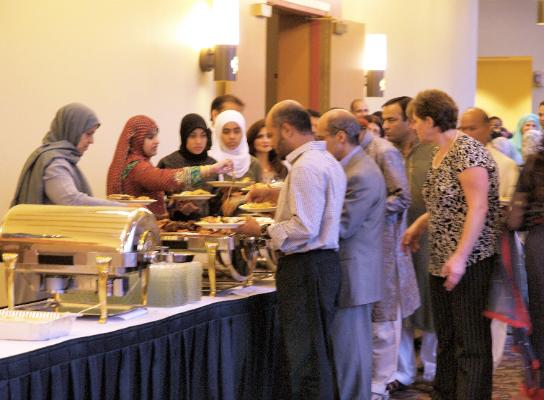
| INTERFAITH EID AL FITR DINNER AT ST. MONICA-ST. GEORGE'S CHURCH, UNIVERSITY HEIGHTS, OHIO August 26, 2011 Courtesy of the Franciscan Network & Council on American Islamic Relations |
| EID AL FITR DINNER AT WOLF' LODGE, KING'S ISLAND, OHIO September 3, 2011 Eid Al Fitr Celebrates the end of Ramadan for Muslims |
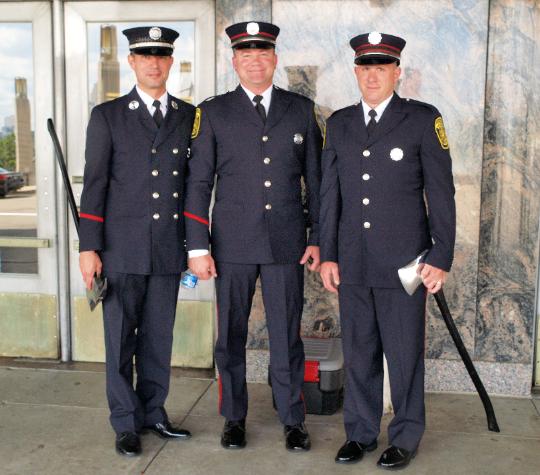
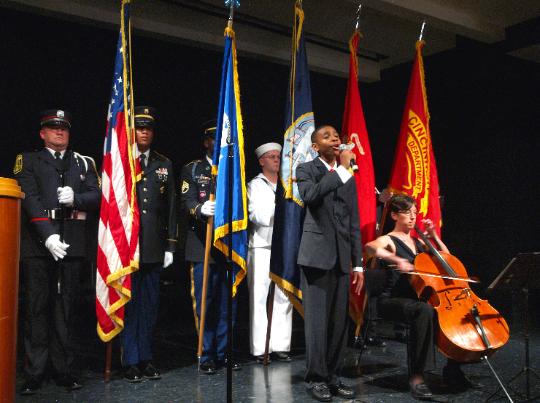
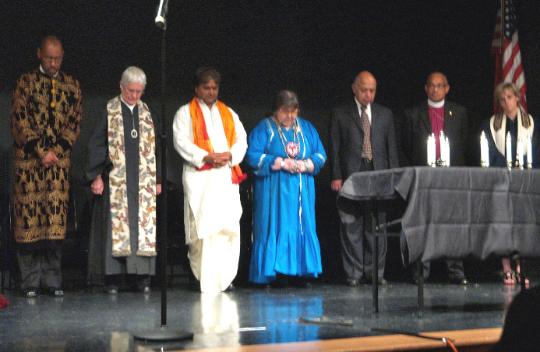
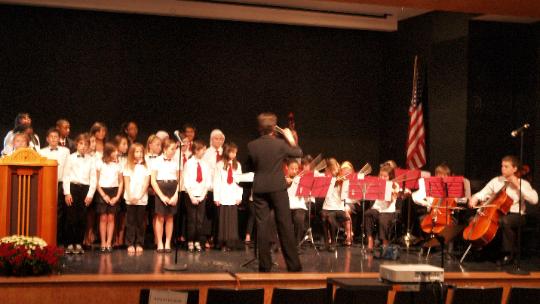
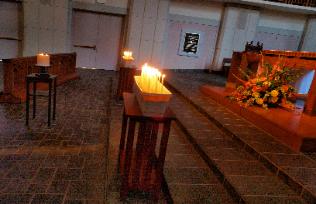
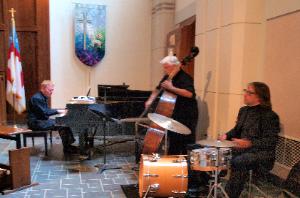
| CHRIST CHURCH CATHEDRAL COMMEMORATED 9/11 WITH A JAZZ CANDLELIGHT VIGIL |
| REMEMBERING SEPTEMBER 11 TEN YEARS AGO Museum Center at the Union Terminal Cincinnati, Ohio USA |

